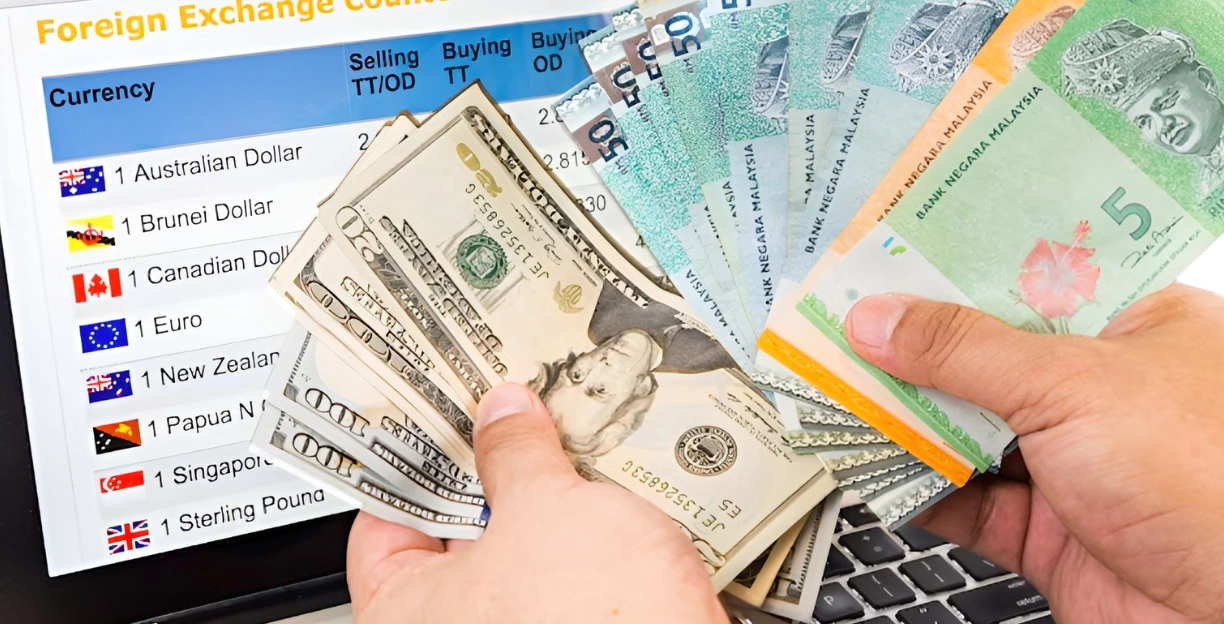Let’s say you just confirmed a bulk order from your overseas supplier and all that is left to do is make payment. You are prepared to log into your business account but then you think to yourself – how am I going to transfer money internationally quickly and without bad foreign exchange rate?
Does this sound familiar? Don’t worry, you are among millions of people and businesses in India who are confused about international money transfer. For many Indian businesses, especially startups and growing businesses, the world of international money transfer can be complicated. There’s compliance, making sure you are using the right payment method, and of course managing foreign exchange risk.
In this guide we will break down everything you need to know about how to make an international money transfer for your business.
Why International Money Transfers Matter
If you are purchasing from suppliers, collaborating with partners, or paying consultants who are located in another country, making secure, timely and cost effective payments is often vital.
One of the first steps in the supply chain, when importing machinery and equipment, engaging providers of digital services, or investing in foreign subsidiaries, is the ability to make international transfers. This ability is absolutely necessary for how modern businesses operate.
With the right partner in currency exchange, you don’t have to experience the usual pain of high fees, exchange fees, poor conversion rates or delays in remitting payments.
Understanding Compliance: The RBI and LRS Framework
Before you conduct a transfer, it’s critical to get your head around the regulatory underpinning of the transfer. In India, international business transfers are regulated by the Reserve Bank of India’s Liberalised Remittance Scheme (LRS).
Here are the main points to note:
- Annual Limit: You can remit USD 250,000 per financial year for approved purposes, including business-related payments.
- Permitted Use Cases: this includes paying for imports, acquiring software licenses, establishing overseas offices, or reimbursing foreign employers.
- Tax Implications: Initially, Tax Collected at Source (TCS), may apply, depending on the amount being sent. Always check with your CA or tax adviser before making a large transfer.
So yes, you can transfer funds internationally from India for business purposes—but it must be documented correctly and within limits.
Common Ways of Transferring Money Internationally
Now let us look at some of the best, reliable, and accessible options for Indian businesses to send funds abroad:
1. Online Wire Transfers via Banks
Most major Banks in India (ICICI, HDFC, Axis, etc) offer online wire transfer services, through selected financial service providers (eg: Unipay Forex). The online wire transfer can usually be accessed through your preferred bank’s net banking app or mobile app. They operate via the SWIFT network which allows for international reach.
Pros:
- Backed by your trusted bank
- Multiple currency support
- Trackable with reference numbers
Cons:
- Higher fees
- May involve intermediary bank charges
2. Fintech Platforms
Companies such as Wise and Revolut have become increasingly popular because they provide visible pricing and conversion ‘in what feels like real-time’ against the interbank rate. These are ideal solutions for small and recurring payments.
Pros:
- Competitive foreign exchange rates
- Fast transfers
- Simple user interface
Cons:
- Transfer limits are usually much lower
- Not suited for complicated/remittance transactions
3. Western Union Business Transfers
Yes, Western Union provides business transfer solutions. Western Union transfers can be sent online and tracked according to the unique Money Transfer Control Number (MTCN).
Pros:
- Non-stop global access
- Straightforward tracking
Cons:
- Transfer limits by bank transaction
- Often has higher fees than banks or fintechs
4. Foreign Currency Demand Drafts (FCDD)
Demand drafts or foreign currency demand drafts (FCDD) are more traditional. Banks will issue an FCDD in the form of a physical cheque and send the cheque as a foreign currency cheque. The cheque can be couriered to the recipient and deposited in their country.
Pros:
- Safe option for infrequent or larger value transactions
- Banks will accept and deposit where electronic payments are not possible
Cons:
- Slower processing (depends on distance)
- Courier delays
Information You’ll Need to Transfer Funds
After you’ve selected a method, be sure to check the following before you process the payment:
- The name and address of the business being paid
- The beneficiary’s account number or IBAN
- Recipient bank’s SWIFT/BIC code
- The currency and exact amount of the payment
- Purpose of payment (this is required to comply with the RBI)
Make sure to double check everything before hitting confirm. A single misplaced digit could make the process longer, or cause a return.
How to Make a Transfer: In 4 Easy Steps.
Here is a simple road map:
- Log in to your bank portal or money transfer service
- Enter the details of your recipient based on the tick list above
- Indicate the currency and amount
- Check the exchange rate and any fees before confirming
- Authorise the transaction using your OTP or secure credentials
- Track the transfer using the reference number when provided
- Confirm receipt with your overseas contact.
Fees, Exchange Rates, and Speed: What to Expect
International money transfer involves three primary components:
- Transfer Charges: These differ vastly. Fintechs usually have a cheaper fixed fee. Banks sometimes charge a bit more, but you often get a curated service.
- Exchange Rates: This is where the real cost lies. If you get a bad rate, you may end up paying more than you need to. Be sure to compare services or seek out fintech companies like Unipay Forex for better foreign exchange rates.
- Transfer Time: Bank wires take 2–5 working days, fintech platforms can be 1–2 working days, while demand drafts can often take several weeks.
Business Transfers Best Practices
Here are some simple ideas you can implement to maximize your international transfers:
- Shop around for the best exchange rates before sending anything
- Plan your payments ahead of time to avoid late fees
- Document your transaction for tax and audit reasons
- Use invoices and multi-currency accounts if you regularly deal across regions
- Use a trusted pathway to transfer money like Unipay Forex with solid knowledge of business, a thorough understanding of Reserve Bank of India (RBI) rules and regulations, as a trusted middle layer.
Why Businesses Trust Unipay Forex
If you’re looking for a platform that combines regulatory compliance, competitive exchange rates, and human support, Unipay Forex ticks all the boxes.
Here’s why businesses across India choose Unipay:
- Simple online interface for wire transfers
- Transparent currency exchange rates updated in real-time
- Tailored support for businesses, exporters, and importers
- Quick turnaround on approvals and documentation
- One-stop solution for forex cards, business travel allowance, and global transfers
When you choose Unipay, you’re not just sending money—you’re building global relationships backed by trust, speed, and compliance.
Final Thoughts
Transferring money internationally for business isn’t just about clicking a button. It’s about ensuring your money reaches safely, affordably, and compliantly. Whether you’re just starting out or scaling globally, having the right financial partner makes all the difference.
So the next time you need to send funds abroad, make it easy, smart, and secure—make it with Unipay Forex.Ready to start?
Explore our business services or speak to our forex experts today.




